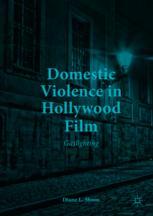

Most ebook files are in PDF format, so you can easily read them using various software such as Foxit Reader or directly on the Google Chrome browser.
Some ebook files are released by publishers in other formats such as .awz, .mobi, .epub, .fb2, etc. You may need to install specific software to read these formats on mobile/PC, such as Calibre.
Please read the tutorial at this link: https://ebookbell.com/faq
We offer FREE conversion to the popular formats you request; however, this may take some time. Therefore, right after payment, please email us, and we will try to provide the service as quickly as possible.
For some exceptional file formats or broken links (if any), please refrain from opening any disputes. Instead, email us first, and we will try to assist within a maximum of 6 hours.
EbookBell Team

4.8
94 reviewsThis is the first book to critically examine Hollywood films that focus on male partner violence against women. These films include Gaslight, Sleeping with the Enemy, What’s Love Got to Do with It, Dolores Claiborne, Enough, and Safe Haven. Shaped by the contexts of postfeminism, domestic abuse post-awareness, and familiar genre conventions, these films engage in ideological “gaslighting” that reaffirms our preconceived ideas about men as abusers, women as victims, and the racial and class politics of domestic violence. While the films purport to condemn abuse and empower abused women, this study proposes that they tacitly reinforce the very attitudes that we believe we no longer tolerate. Shoos argues that films like these limit not only popular understanding but also social and institutional interventions.